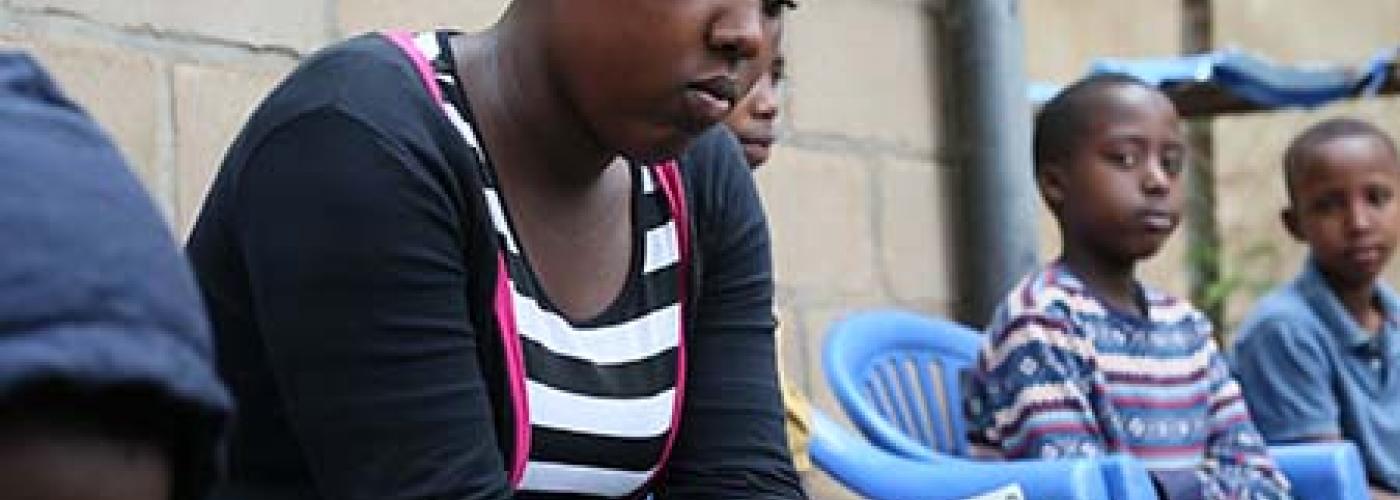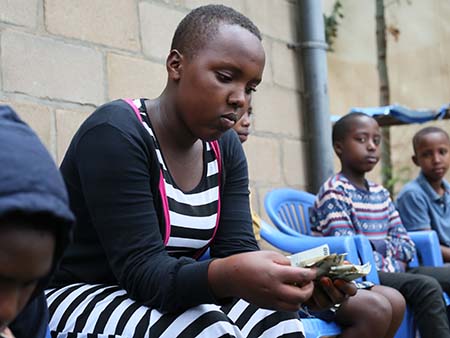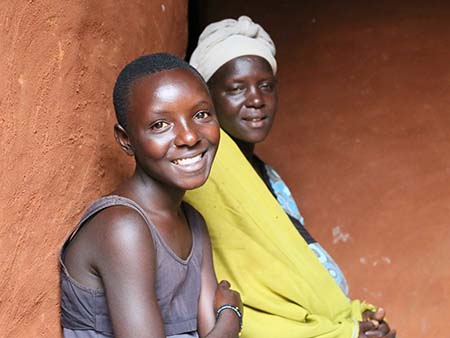Savings Groups Empower Refugee Girls
Image


On a Sunday afternoon in a Rwandan Refugee Camp, adolescent girls sit together under a tree counting money, writing in notebooks, and talking with one another. In the center, there is an open metal box with two padlocks were the money is stored.
“Whenever I got money in the past, I would immediately buy doughnuts and eat them all, but now I first think of saving it,” says 16-year-old Yvonne. “Now when I get coins during the week, I keep them until Sunday and take it for saving. I have now garnered RWF 10,000 [$8.50 USD] in the coffers.”
Yvonne is part of a Youth Savings Group (YSG) through Plan International’s Girls Take the Lead project. The 29-month project was implemented in the Gihembe and Nyabiheke Refugee Camps for Congolese refugees in Rwanda. It provided 660 girls ages 12-17 with knowledge on sexual and reproductive health and rights, life skills, financial literacy, business skills, access and control of financial assets, savings, credit, personal self-esteem, and decision-making skills. The program used three life skills curricula, which included Choose a Future, Youth Savings Group Methodology, and Enterprise Your Life.
Plan hired Three Stones Consulting LTD to conduct both baseline and endline studies to see if and how the Girl’s Take the Lead project effected the lives of youth. As with many refugee camps, Gihembe and Nyabiheke lack basic services, such as protection centers and structured activities for young people before Plan arrived. Girls, in particular, faced a high risk of violence and sexual abuse. The lack of resources led many girls to make risky choices in order to get money or material goods. When asked why they had sex, the two highest responses were poverty and a desire to have nice things. In a baseline survey, 38 percent of the girls who were sexually active said they have exchanged sex for something tangible.
YSGs promote positive asset building and can be an appropriate starter system to introduce girls, boys, young women, and men to finance, including a regular savings routine, collective money management experience, and the elements of personal finance. YSGs are a good mechanism for experiential learning because they are low risk — the amounts of money are relatively small, and there is little pressure to borrow. As is the case with adult groups, the youth model is an ideal platform for the delivery of complementary interventions in financial education, life skills, and entrepreneurship training, thus improving opportunities for employment or self-employment.
YSGs will also learn about:
- Financial management
- Life goals
- Gender equality
- Decision-making
- Effective communication
- Conflict resolution
- Problem-solving
- Learning and training opportunities
- Employment
- Entrepreneurship
The endline study found the impacts of saving groups included stronger relationships among peers, knowledge of financial management, an understanding of market conditions in their camp as well as the ability to save, take out loans, and access credit. The study also found there was a 23 percent increase in the girls’ ability to save money and a 21 percent increase in girls who were currently saving money for something. Personal items such as clothes, menstrual pads, and body lotion topped the list of items being saved for by the girls.
In addition to these benefits, participants link the new economic opportunities for youth to social and child protection.
“I have four children,” says the mother of a participant. To find clothes for all of them is not easy, especially for the girls who need many things. But, instead of following a man or a boy who tempts them to have sex, she can go to the place where she saved money in the savings group and asks for a loan that helps her to satisfy her needs.”
It was noted that some girls were not just saving but saving with a purpose. Justine, a 14-year-old refugee who lives with her widowed mother and three siblings in Nyabiheke camp in North Eastern Rwanda started selling mangos in her free time and was able to contribute the RWF 3,000 [$3.50 USD] minimum investment needed before being allowed to ask for a loan from her savings group. She used the loan to reopen her mother’s shop. The money generated in the shop paid off her family’s debt of RWF 100,000 [$120 USD].

The endline study showed that because of the life skills they learned and the capital they saved, girls were more empowered to meet their own needs and solve their own problems in a productive and safe manner.
Yvonne was elected by her peers to be in charge of the treasury for her savings group.
“I now know my value,” she said. “I was shy before and wouldn’t even accept any challenge like taking the responsibilities of leading a big group. I had no idea about how to save money, I was just a shy girl who feared everyone. Now I am smart and confident.”


